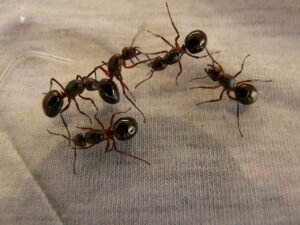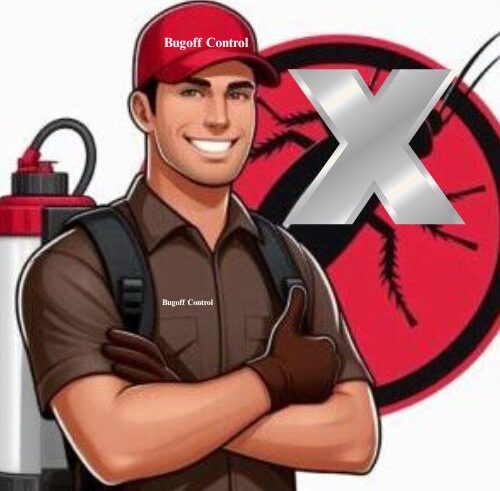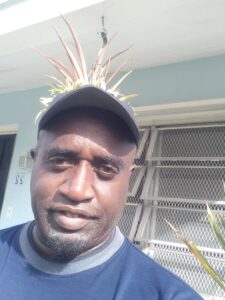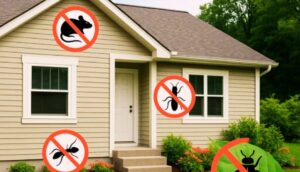The Shocking Truth Behind Ant Behavior

What seems like a simple act—crushing a few ants—can actually trigger an entire chain reaction within the colony. Ants are highly social insects, and their behavior is driven by survival, teamwork, and chemical communication. When one of their own dies, it doesn’t go unnoticed. Instead, it sparks a rapid response from nearby ants who treat the event like an emergency cleanup operation.
This isn’t just a weird insect quirk—it’s an evolved survival strategy. By responding quickly to a fallen ant, the colony reduces the risk of disease spreading from a decomposing body. Plus, some ants may treat the situation as a possible threat, investigating the cause of death and reinforcing their defense lines. It’s a well-coordinated reaction to a tiny tragedy, and it shows just how intelligent ant systems really are.
Even more fascinating is how this behavior can backfire in our homes. When we squish an ant on the kitchen counter or near the trash bin, we may think we’ve solved the problem. But instead, we’ve just sent a chemical alert to the rest of the colony. Within minutes or hours, more ants arrive—either to retrieve the body or to investigate the perceived threat. That’s why understanding how ants communicate is key to stopping infestations before they spiral out of control.
The Real Reason Dead Ants Bring More Ants
Believe it or not, dead ants send signals—chemical signals, to be exact. When an ant dies, it releases a specific chemical called oleic acid. To other ants, this scent is a clear sign: “Hey, there’s a fallen comrade here.”
Now, you might think ants would stay clear of this scene, right? Actually, the opposite is true. Other ants come rushing in, often to investigate, clean up, or alert their colony.
Key Takeaway:
Dead ants release a chemical signal (oleic acid), which acts like a call-to-action for nearby ants.
It’s All About Communication (Ant Style)
Ants don’t talk like we do. Instead, they rely on pheromones—special chemicals that send messages. These chemical trails guide them to food, warn of danger, or in this case, signal death.
When a worker ant dies, its body gradually releases oleic acid. This acts as a “death pheromone.” Nearby ants pick up on it using their antennae, and soon enough, you’ll notice a gathering at the site of the dead ant.
Ants Are Nature’s Cleanup Crew
Another reason ants are attracted to their dead is cleanliness. Ants are very hygienic insects. When they sense a dead body, they quickly remove it from the nest or area to prevent contamination.
Some species even have designated “graveyard” zones—yes, real insect cemeteries! These cleanup routines help keep the colony safe from disease.
But Wait—It Could Get Worse
Here’s where things get a bit uncomfortable. When ants come to investigate a dead ant, they often leave behind more pheromone trails. These trails act like highways, guiding even more ants to the same spot.
That’s why if you crush an ant, especially indoors, you may accidentally trigger a swarm.
How to Avoid Attracting More Ants
Don’t worry—there are ways to stop this cycle. The key is to clean up properly and eliminate those chemical trails.
Here’s what to do:

-
Remove the dead ants immediately.
-
Clean the area with vinegar or soapy water to remove pheromone traces.
-
Seal off entry points to stop ants from coming inside in the first place.
Interesting Fact: Ants Recognize Death in Hours
Scientists have found that ants don’t always recognize a dead ant right away. It can take up to 24-48 hours for the oleic acid to fully develop and be recognized. However, if the body is crushed, the smell spreads faster, speeding up the alert.
Why You Shouldn’t Just Crush Ants
Crushing ants may give you short-term satisfaction, but it often makes the problem worse. It can:

-
Spread the death pheromone quickly.
-
Attract more ants to the scene.
-
Lead to repeated ant trails and gatherings.
Instead, use traps, bait stations, or natural deterrents.
Natural Ways to Repel Ants (And Keep Them Gone)
If you’re looking for eco-friendly ways to keep ants away without making the situation worse, here are some proven options:
-
Cinnamon: A strong scent ants hate. Sprinkle it around doors and windows.
-
Peppermint oil: Mix with water and spray on ant trails.
-
Vinegar: Breaks down scent trails and repels ants naturally.
-
Lemon juice: The acidity masks pheromone trails.
Do Different Ant Species React Differently?
Yes! While most ants react to death pheromones, some species are more sensitive than others. For example:
-
Fire ants may respond aggressively.
-
Argentine ants might swarm and carry away the dead.
-
Carpenter ants typically remove bodies quickly from nesting areas.
Understanding your local ant species can help you manage infestations better.
Final Word: Knowledge Is Power
Knowing why dead ants attract more ants can help you prevent infestations and deal with ants more effectively. Rather than squishing them on the spot, think strategically. Clean up, erase the trails, and use proper control methods.
Top 10 Frequently Asked Questions (FAQs)
1. Do ants always come when one dies?
Not instantly. It depends on the time it takes for oleic acid to develop. Once and ant is squash, that signal spreads faster.
2. Why do ants carry dead ants?
Ants remove dead bodies to keep the colony clean. It helps stop disease from spreading and helps to maintain hygiene.
3. Can ants smell dead ants?
Yes, through their antennae. They pickup on oleic acid that dead ants release.
4. Can Cleaning with vinegar stop more ants from coming?
Absolutely. The scent of vinegar will erase pheromone trails, making it more difficult for other ants to follow the path.
5. What should I do if I accidentally squish an ant indoors?
Clean the area right away with soapy water or vinegar. Then monitor for more activity.
6. Is it better to use ant traps than killing them by hand?
Yes! Ant traps target the colony at its source. Killing by hand only deals with the symptom, not the root.
7. Do ants mourn their dead?
Not in the emotional sense. However, they do respond in an organized way to remove the dead and protect the colony.
8. Can I use essential oils to prevent ants from returning?
Definitely. Peppermint oil, tea tree oil, and clove oil are great ant deterrents.
9. How can I tell if more ants are coming?
Look for new trails or increased activity in the same spot. If ants keep appearing, you may be dealing with an active trail or nearby nest.
10. Are there long-term solutions to ant problems?
Yes. Regular sealing of cracks, cleaning food crumbs, using baits, and natural repellents can create an ant-free environment over time.
Conclusion: Stop the Swarm Before It Starts
Ants may be tiny, but their behavior is incredibly organized—and yes, even a single dead ant can lead to a bigger problem. Now that you know why dead ants attract more ants, you can avoid making common mistakes that worsen infestations.
Here’s a quick recap:
-
Dead ants release oleic acid, signaling others to come.
-
Squishing ants can cause more to arrive.
-
Cleaning properly and using natural repellents can stop the cycle.
-
Preventive measures are more effective than reactive ones.
Remember, the goal isn’t just to kill ants—but to keep them from coming back. So next time you spot an ant trail, think before you squash. A little knowledge goes a long way toward a bug-free home!
Enjoyed this post?
Check out our latest guides and natural pest control solutions at BugOffControl.com and discover how to protect your home the smart way!









